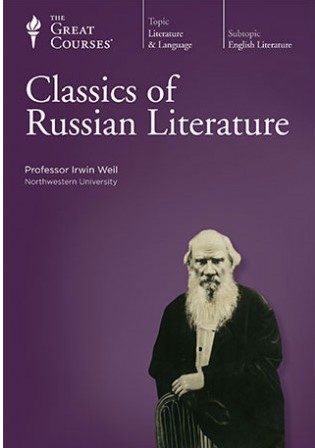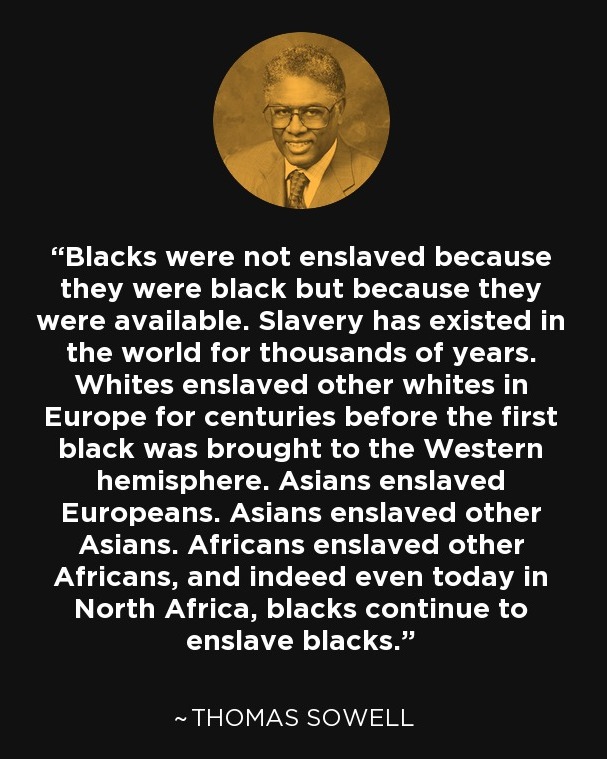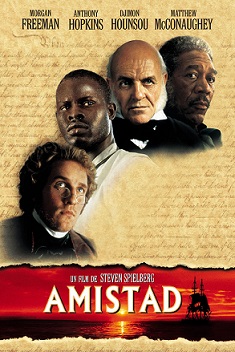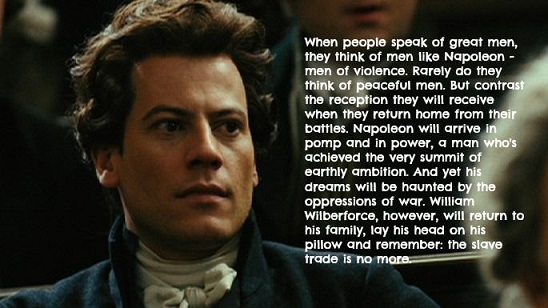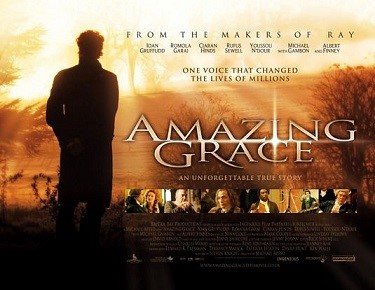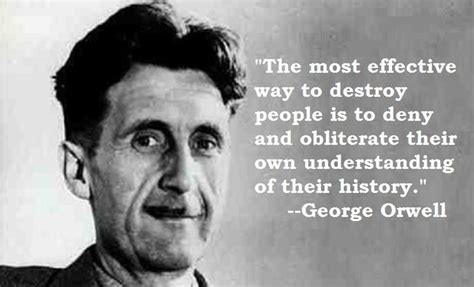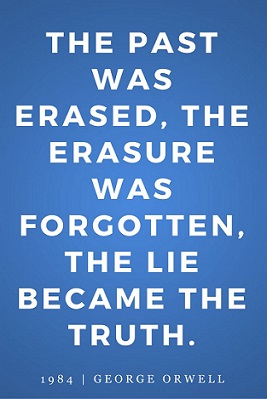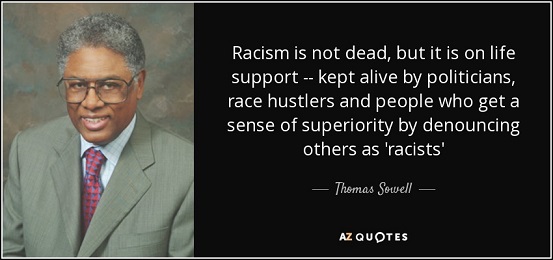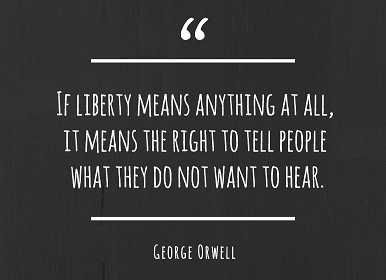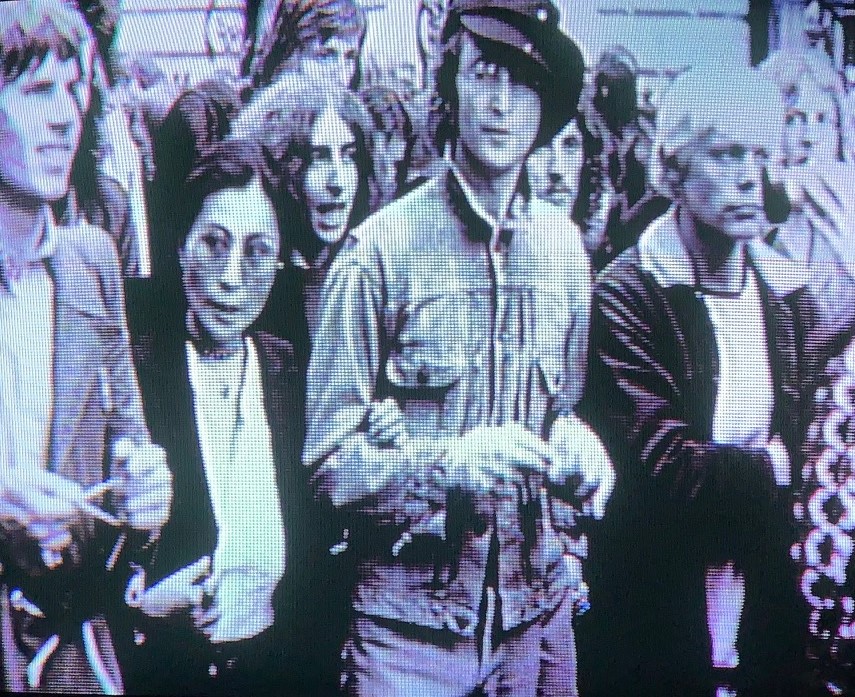|
home | what's new | other sites | contact | about |
||||||||||||||||||||||
|
Word Gems exploring self-realization, sacred personhood, and full humanity
Economics
Editor's 1-Minute Essay: Economics Henry Hazlitt: Economics in One Lesson F.A. Hayek: The Road to Serfdom Milton Friedman: Free to Choose Dr. Irwin Weil, Professor of Russian Literature: the long but steady march toward totalitarianism
Thomas Sowell: "One of the most basic confusions is between income and wealth. You can have high income and low wealth or vice versa. We have all heard of athletes and entertainers who have earned millions and yet ended up broke. There are also people of relatively modest incomes who have saved and invested enough over the years to leave surprisingly large amounts of wealth to their heirs." Gil Morales and Chris Kacher, July 5, 2011: "In the U.S., failure to raise the debt ceiling will end the country’s ability to continue its 'Ponzi scheme' of issuing ever more Treasury debt to cover principal and interest payments on existing debt... The rapid expansion of debt denominated in any particular currency eventually leads to the devaluation of that currency, be it the U.S. dollar [or] the euro... the long-term trajectory of such currencies will always be to the downside. After all, those who have studied their economics know that no government in the recorded history of humankind has ever succeeded in overcoming an astronomical debt burden by debasing its own currency and allowing inflationary forces to run their debilitating course. Yet, this seems the exact tactic the economic regimes in the United States and Europe are currently resorting to... Investors should recognize the inherent long-term weakness of the major fiat currencies, and begin diversifying at least some percentage of their funds into hard assets." Steve Forbes, 1-07-08: “The Bush administration says it was doing only what bankers would have done anyway in corralling the biggies in the home mortgage field and having them agree to provide relief to a million or so subprime borrowers… A critical, oft-underappreciated principle of free markets is property rights and the sanctity of contracts. It's one thing if both parties sit down and renegotiate terms, quite another when the government comes in and says (in this case) to the bankers: 'Do it or we'll break your arms.' … Treasury Chief Henry Paulson's decision follows bad precedents made during the Great Depression. Both the Hoover and Roosevelt administrations took high-handed actions that precipitated and then deepened and prolonged the economic crisis that was battering both the U.S. and the rest of the world and made possible the rise of Nazism and the advent of World War II. In particular, Paulson's powwow in December was reminiscent of one of President Herberts Hoover's moves in the fall of 1929, following the stock market crash. Hoover convened a meeting of the leaders of many large companies and had them promise not to cut wages or lay off workers. Amazingly these corporate chieftains largely stuck to the agreement for more than a year, until sickening economic conditions forced them to slash payrolls and salaries in order to stay afloat. Amity Shlaes's The Forgotten Man: A New History of the Great Depression reveals that Hoover's seemingly humane actions perversely worsened the crisis. As sales plummeted, these companies had to tighten expenses, which forced suppliers to slash prices. In turn, suppliers had no choice but to engage in massive layoffs of their own workforces. The large companies, by keeping all their workers on their payrolls and salaries artificially high, ended up creating far more joblessness in the rest of the economy.”
Thomas Jefferson to Eldridge Gerry, 1799: "I sincerely believe that banking establishments are more dangerous than standing armies and that the principle of spending money to be paid by posterity, under the name of funding, is but swindling on a large scale." Warren Buffett, How Inflation Swindles the Investor, Fortune, May, 1977: “The arithmetic makes it plain that inflation is a far more devastating tax than anything that has been enacted by our legislature. The inflation tax has a fantastic ability to simply consume capital. It makes no difference to a widow with her savings in a 5 percent passbook account whether she pays 100 percent income tax on her interest income during a period of zero inflation or pays no income tax during years of 5 percent inflation. Either way, she is 'taxed' in a manner that leaves her no real income whatsoever. Any money she spends comes right out of capital. She would find outrageous a 100 percent income tax but doesn't seem to notice that 5 percent inflation is the economic equivalent.”
Abraham Lincoln, March 6, 1860: "When one starts out poor, as most do in the race of life, free society is such that he knows he can better his condition... I am not ashamed to confess that twenty-five years ago I was hired as a laborer... I want every man to have the chance... The prudent, penniless beginner in the world, labors for wages awhile, saves a surplus with which to buy tools or land, for himself; then labors on his own account another while, and at length hires a new beginner to help him. This, say its advocates, is free labor - the just and generous, and prosperous system, which opens the way for all - gives hope to all, and energy, and progress, and improvement of condition to all. If any continue through life in the condition of the hired laborer, it is not the fault of the system, but because of either a dependent nature which prefers it, or improvidence, folly, or singular misfortune."
it's not the color of skin, but the heart of darkness
in early America, there were both white and black slave owners Wikipedia: “African American slave owners within the history of the United States existed in some cities and others as plantation owners in the country.” Further, in Africa blacks enslaved blacks, and some blacks worked with white slave traders supplying black slaves for shipment. For political reasons of totalitarian control, we have been offered a doctored narrative that slavery, and by extension racism, is a white problem and a white vice. But this wholly distorts the issue. Slavery and racism do not spring from one particular oppressor or group but these evils are part of a universal “heart of darkness” afflicting all human beings. This misrepresentation of history promotes division and strife among groups, allowing demagogues to buy votes, to position themselves as saviors, against the “evil white race.” All unenlightened human beings will seek to dominate, oppress, and – if they can get away with it – enslave all others. This is business-as-usual on planet Earth for thousands of years. Today, while the traditional enslavement of peoples still exists in the world, there are other forms of slavery impinging upon human rights: child trafficking, drug dealing, pedophilia and sex slaves; and, for those who prefer the more subtle approach, there is the ever-popular mental enslavement via fake news, censorship, character assassination, and other distortions to serve political agendas.
Paul Johnson, Enemies of Society: "Throughout history all intelligent observers of society have welcomed the emergence of a flourishing middle class, which they have rightly associated with economic prosperity, political stability, the growth of individual freedom and the raising of moral and cultural standards. The middle class, stretching from the self-employed skilled craftsman to the leaders of the learned professions, has produced the overwhelming majority of the painters, architects, writers, and musicians, as well as the administrators, technologists and scientists, on which the quality and strength of a culture principally rest. The health of the middle class is probably the best index of the health of society as a whole; and any political system which persecutes its middle class systematically is unlikely to remain either free or prosperous for long."
President Ronald Reagan, June 22, 1983: [He listed many items as evidence of the new U.S. prosperity] "But there's an easier way to tell that our program works, that recovery is here, and that the country is beginning to sparkle: suddenly our critics are no longer calling the program Reagonomics." Forbes, "Pfizer: Company of the Year," Jan.11, 1999: "The lush [Pfizer] profits will be plowed back into the lab to produce even more bumper crops in the future. This is in sharp contrast to other drug houses whose mergers have been motivated in good part by a desire to cut overlapping research costs. 'Everyone in the industry has 20% earnings growth, but they're making their earnings by cutting expenses,' [Pfizer CEO] Steere says ... 'That's a death spiral.' At Merck ... earnings in the first nine months of 1998 rose 14%, compared with only 11.3% in sales; that's partly because [R&D] rose only 1.8% in the same period. At Pfizer [the CFO] worries earnings will get too high. 'It's a sign we're doing something wrong.'"
John Miller, 1771, Of the Origin and Distinction of Ranks: Miller, a student of Adam Smith, moral philosopher and author of Wealth of Nations, explains the moral foundations of free trade and a capitalistic market economy; how economic servitude and fawning dependence create a stultifying view toward personal freedoms and the dignity of man in general. "In this situation, persons of low rank have no opportunity of acquiring [wealth] or of raising themselves to superior stations and remain for ages in a state of dependence. They naturally contract such dispositions and habits as are suited to their circumstances. They acquire a sacred veneration for the person of their master and are taught to pay an unbounded submission to his authority. They are proud of that servile obedience by which they seem to exalt his dignity and consider it as their duty to sacrifice their lives and their possessions in order to promote his interest or even to gratify his capricious humour ... The farther a nation advances in [free, open markets, open opportunities for all] ... the lower-people in general thereby become more independent of their circumstances. They begin to exert those sentiments of liberty which are natural to the mind of man and which necessity alone is able to subdue. In proportion as they have less need of the favour and patronage of the great, they're at less pains to procure it. That vanity which was formerly discovered in magnifying the power of a chief is now equally displayed in a sullen indifference or in a contemptuous and insolent behaviour to persons of a superior rank and station." [Editor's note: It should be noted that this was written during a period called "The Scottish Enlightenment," a time not only of expanding free markets and growing wealth of the Scottish middle-class, but, also in direct consequence, an explosion of intellectual Scottish achievement that became the envy of England and Europe!] Thomas Sowell, Dec. 23, 2003: "It was not a free-market think tank, but Soviet economists, who pointed out that Soviet industry used far more inputs to produce a given output than did market economies like Germany, Japan or the United States. Economically illiterate people ... have never understood the role of profit as an incentive to keep costs down. To the economically illiterate, if some company makes a million dollars in profit, this means that their products cost a million dollars more than they would have cost without profits. It never occurs to such people that these products might cost several million dollars more to produce than if they were produced by enterprises operating without the incentives to be efficient created by the prospect of profits. If 'obscene profits' are what cause pharmaceutical drugs to cost so much, why haven't socialist countries set up their own government-owned pharmaceutical enterprises to produce drugs more cheaply? Why don't non-profit organizations here do that? It is because rhetoric is cheap but creating drugs is not. Recent estimates are that it costs $800 million per new drug. That is why drug prices are so high."
Ayn Rand: "Inflation is not caused by the actions of private citizens, but by the government: by an artificial expansion of the money supply required to support deficit spending. No private embezzlers or bank robbers in history have ever plundered people's savings on a scale comparable to the plunder perpetrated by the fiscal policies of statist governments... Every movement that seeks to enslave a country, every dictatorship or potential dictatorship, needs some minority group as a scapegoat which it can blame for the nation's troubles and use as a justification of its own demand for dictatorial powers. In Soviet Russia, the scapegoat was the bourgeoisie; in Nazi Germany, it was the Jewish people; in America, it is the businessmen... If some men are entitled by right to the products of the work of others, it means that those others are deprived of rights and condemned to slave labor." Sir Thomas Gresham, c. 1560: "When depreciated, mutilated, or debased coinage (or currency) is in concurrent circulation with money of high value in terms of precious metals, the good money automatically disappears." Will & Ariel Durant, The Lessons of History: "Socialism in Russia is now [1968] restoring individualistic motives to give its system greater productive stimulus... Meanwhile capitalism undergoes a correlative process of limiting individualistic acquisition ... and redistributing wealth through the 'welfare state' ... The fear of capitalism has compelled socialism to widen freedom, and fear of socialism has compelled capitalism to increase equality. East is West and West is East, and soon the twain will meet." Michael A. Heilperin: "In a country whose currency is not convertible into gold, inflation leads to its continuous devaluation in terms of foreign currencies." William F. Rickenbacker: "Gold would have value if for no other reason than that it enables a citizen to fashion his financial escape from the state." Ludwig von Mises: "Do the American voters know that the unprecedented improvement in their standard of living that the last hundred years brought was the result of the steady rise in the per-head quota of capital invested? Do they realize that every measure leading to capital decumulation jeopardizes their prosperity?" Edward Gibbon: "In the end, more than they wanted freedom, they wanted security." F.A. von Hayak: "With the exception only of the period of the gold standard, practically all governments of history have used their exclusive power to issue money to defraud and plunder the people." Dr. Franz Pick: "The fate of the nation and the fate of the currency are one and the same." Henry Hazlitt: "The first requisite of a sound monetary system is that it put the least possible power over the quantity or quality of money in the hands of the politicians." Thomas Jefferson: "Were we to be directed from Washington when to sow and when to reap, we should soon want bread." Ludwig von Mises: "The truth is that capitalism has not only multiplied population figures, but at the same time, improved the people's standard of living in an unprecedented way. Neither economic thinking nor historical experience suggest that any other social system could be as beneficial to the masses as capitalism. The results speak for themselves. The market economy needs no apologists and propagandists. It can apply to itself the words of Sir Christopher Wren's epitaph in St. Paul's: Si monumentum requiris, circumspice. (If you seek his monument, look around.)" Ludwig von Mises: "Public works are not accomplished by the miraculous power of a magic wand. They are paid for by funds taken away from the citizens." Daniel Webster: "Of all the contrivances for cheating the laboring classes of mankind, none has been more effective than that which deludes them with paper money." Ludwig von Mises: "It is important to remember that government interference always means either violent action or the threat of such action.....taxes are paid because the taxpayers are afraid of offering resistance to the tax gatherers. They know that any disobedience or resistance is hopeless. As long as this is the state of affairs, the government is able to collect the money that it wants to spend. Government is in the last resort the employer of armed men, of policemen, gendarmes, soldiers, prison guards, and hangmen. The essential feature of government is the enforcement of its decrees by beating, killing, and imprisoning. Those who are asking for more government interference are asking ultimately for more compulsion and less freedom." Alan Greenspan: "Deficit spending is simply a scheme for the 'hidden' confiscation of wealth. Gold stands in the way of this insidious process. It stands as a protector of property rights." Barry Asmus: "Politicians can't give us anything without depriving us of something else. Government is not a god. Every dime they spend must first be taken from someone else." Winston Churchill: "It is a socialist idea that making profits is a vice. I consider that the real vice is making losses." James Dale Davidson: "Place 5% to 10% of your total assets in gold bullion and selected gold and silver coins. No one knows with certainty whether the coming depression will be inflationary or deflationary." Ludwig von Mises: "The standard of living of the common man is higher in those countries which have the greatest number of wealthy entrepreneurs." Henry Hazlitt: "The possibility of a discriminatory capital-gains tax on gold 'profits,' or even of outright confiscation, cannot be wholly dismissed. We must remember that in 1933, when private citizens began to exercise their clear legal right to convert their Federal Reserve notes and gold certificates into gold, President Franklin D. Roosevelt suspended the conversion, ordered the citizens to exchange their gold for paper money, and made it illegal for private citizens to hold or own gold. In other words, the government not only broke its solemn and explicit pledge to convert its notes into gold on demand, but treated the holder (and dupe) who had taken the pledge seriously as the real culprit." Peter A. Burshre: "Regardless of the dollar price involved, one ounce of gold would purchase a good-quality man's suit at the conclusion of the Revolutionary War, the Civil War, the presidency of Franklin Roosevelt, and today." Albert Schweitzer: "Civilization can only revive when there shall come into being in a number of individuals a new tone of mind independent of the one prevalent among the crowd and in opposition to it. A new public opinion must be created privately and unobtrusively. The existing one is maintained by the press, by propaganda, by organization, and by financial influences which are at its disposal. The unnatural way of spreading ideas must be opposed by the natural one, which goes from man to man and relies solely on the truth of the thoughts and the hearer's receptiveness of new truth." Daniel M. Kehrer: "How rare is gold? If you could gather together all the gold mined in recorded history, melt it down, and pour it into one giant cube, it would measure only about eighteen yards across! That's all the gold owned by every government on earth, plus all the gold in private hands, all the gold in rings, necklaces, chains, and gold art. That's all the gold used in tooth fillings, in electronics, in coins and bars. It's everything that exists above ground now, or since man learned to extract the metal from the earth. All of it can fit into one block the size of a single house. It would weigh about 91,000 tons - less than the amount of steel made around the world in an hour. That's rare." Adolf Hitler: "Gold is not necessary. I have no interest in gold. We'll build a solid state, without an ounce of gold behind it. Anyone who sells above the set prices, let him be marched off to a concentration. That's the bastion of money." Christopher Columbus: "Gold is a treasure, and he who possesses it does all he wishes to in this world, and succeeds in helping souls into paradise." W. M. Scammell: "There can be no doubt that the international gold standard, as it evolved in the 19th century, provided the growing industrial world with the most efficient system of adjustment for balance of payments which it was ever to have, either by accident or by conscious planning." Jim Cramer, August 2006: commenting on the bursting of the housing-price bubble: "Others besides the Fed deserve blame, too… How about how Fannie Mae and Freddie Mac were able to do whatever they wanted to make housing affordable? How about the capital gains waiver on flipping a house after a couple of years? Or the interest rate deductions for multiple houses? Or the waiver of tax when you rent your beach home out for a small period of time? Or how about the reverse mortgages? The teaser mortgages? You know what these are all the equivalent of? When the Fed did nothing about margin rates when stock speculation went nuts in the 1990s. When you tax-advantage the heck out of property, any property, you are going to inflate it. We all knew that this bubble was happening, but nobody wanted to take any action to stem it. Now we have to do it the hard way… Politicians working with the real estate lobby couldn't stop." Dick Morris, July 2006: “Congress's pay is indexed to increases in the cost of living, but the minimum wage is not. And whose fault is that? In 1996, I asked President Clinton and Senate Majority Leader Trent Lott (R-Miss.) if they would consider accepting an indexation of the minimum wage as an alternative to the one-shot increase that eventually passed. Lott said yes. Clinton said no. Had the president agreed, the minimum wage would now be closing in on $7, not enough to live on but a lot better than its current, paltry level. Now Hillary Clinton is attacking the administration and the Republican Congress for raising congressional pay while turning down a minimum-wage increase. But it was her husband's desire that the minimum wage not be indexed. The Democratic Party likes the annual fight to raise the minimum wage. It uses the issue to keep its base united, loyal … and poor." Lawrence Kudlow, July 2006: "Did you know that over the past 11 quarters, dating back to the 2003 Bush tax cuts, America has increased the size of its entire economy by 20%? In less than three years, the U.S. economic pie has expanded by $2.2 trillion, an output add-on roughly the same size as the total Chinese economy." Steve Forbes, October 2006: "German Chancellor Angela Merkel ... suffered a serious setback in recent elections ... [caused by] the massive tax increase recently pushed through ... [Merkel] seems to have forgotten the inspiring example of Ludwig Erhard, West Germany's first post-war economics minister. Erhard was a true free-marketer. Against the wishes of the Allied occupiers, he overnight threw out ... wage-and-price controls. He created a new currency and embarked upon a substantial tax-cutting program. The sluggish German economy came roaring back to life. Germany soon surpassed it prewar production peaks and by the mid-1950s had pulled ahead of both Great Britain and France in economic prowess... lightening the economic burden leads to the kind of prosperity that, in turn, leads to burgeoning government receipts." Joseph Schumpeter, Harvard professor and economist (1883-1950): In his book Business Cycles (1939), Schumpeter asserted that the long-term ebb-and-flow price movements of the business cycle are linked to technological innovation. These innovations, the product of entrepreneurial efforts, not only upset and influence certain industries but entire economies. Schumpeter foresaw that technological innovation presents itself in “clusters” or groups of occurrences – this happens because of copy-cat versions of the original product or service, others attempting to cash in on a good thing. All of this sets up a Kondratieff long-wave cycle (a pattern of economic regularity) as the innovation process plays itself out and is diffused within the marketplace. Alvin Hansen (1887-1975), Schumpeter’s Harvard colleague, summarizes his friend’s theory: “Innovation wells up in a great tidal wave and then recedes. The business cycle, as Schumpeter saw it, is nothing more or less than the ebb and flow of innovation, together with the repercussions flowing there from. An economy which experiences innovations necessarily displays wave-like movements. Innovation involves capital investment which appears en masse at intervals. Innovational activity tends to come in ‘clusters,’ in ‘bunches,’ because of the herd-like action of followers in the wake of successful innovation. Whenever a few successful innovators appear, a host of others follow. The appearance of a few innovating entrepreneurs facilitates the appearance of others; and these the appearance of more in ever-increasing numbers. This is the basis of the wave-like movement of economic life.” Editor’s note: We see here further evidence of the prime importance of individual activity – not socialistic governmental directive – as the prime mover of growth and change within a national economy: think of the entrepreneurially-induced tech boom of the 1980s, the waves and ripple-effects of which still reverberate today. Lawrence Moss, economist, student of Ludwig von Mises: “I read his books and questioned those aspects of thought with which I disagreed. Oddly enough, the more I argued against some of his tenets, the more he seemed to appreciate my presence. I slowly began to understand what Mises philosophy is essentially about. It is more than a theory of economics, and more than a program of political activity. It is a philosophy built around the individual, considering his opinions and decisions to be important. Mises’ laissez-faire is more than a plea for economic sanity – it is a plea for human toleration.” Ludwig von Mises: Marxist economists disdain capitalism's untidy and inefficient, they say, unplanned economy. Hogwash, says Mises. Laissez-faire is not mindless and random economic activity -- it is individual planning writ large in the marketplace, each person acting as he or she judges best: “The alternative is not [governmental] plan or no plan -- the question is who's planning? Should every member of society plan for himself? or should a benevolent government alone plan for them all? The issue is not automatism versus conscious action. It is autonomous action of each individual versus the exclusive action of the government. It is freedom versus government omnipotence. Laissez-faire does not mean let soulless mechanical forces operate. It means let each individual choose how he wants to cooperate in the social division of labor. Let the consumers determine what the entrepreneurs should produce. Planning [as liberals use the term] means let the government alone choose and enforce its rulings by the apparatus of coercion and compulsion." Ludwig von Mises: Should the government be allowed to regulate dangerous or excessive consumption, for example, narcotics? "Opium and morphine are certainly dangerous habit-forming drugs. But once the principle is admitted that it is the duty of government to protect the individual against his own foolishness, no serious objections can be advanced against further encroachments. A good case could be made out in favor of the prohibition of alcohol and nicotine. And why limit the government's benevolent providence to the protection of the individual's body only? Is not the harm a man can inflict on his mind and soul even more disastrous than bodily evils? Why not prevent him from reading bad books and seeing bad plays? from looking at bad paintings and statues? from hearing bad music? The mischief done by bad ideologies is much more pernicious both for the individual and for the whole society than that done by narcotic drugs." Steve Forbes, July 2, 2007: "The current concern about inflation sadly confirms the staying power of bad ideas, in this case the notion that economic growth creates inflation. The Phillips curve, which posits that there is a tradeoff between inflation and unemployment, has long been discredited by events and academic research. Since Ronald Reagan became President in 1981, for example, the U.S. has had a fantastic expansion, and inflation virtually disappeared until recently. Yet the media are full of stories and pundit head shaking that global capacity for producing goods could soon run out. There is still astonishing confusion between price changes that reflect normal supply and demand and those that reflect monetary blunders. Moore's Law says that the real price of computing power decreases 50% every 18 months. That's productivity, not deflation. When ticket prices for a hot rock concert soar, that's not inflation, it's demand. However, when the cost of living in the U.S. and elsewhere sharply rose in the 1970s, it was, as the late Milton Friedman never tired of pointing out, the result of excess money creation. Central bankers finally began to grasp that inflation was indeed a monetary phenomenon, but the lesson still hasn't stuck. Investors need to realize that monetary misfires have political consequences, usually bad. The 1970s led to a malaise in the U.S., which paved the way for Jimmy Carter's election as President. He gutted our military; undermined the shah of Iran, which led to the current hideous Iranian regime; and engendered a passivity that emboldened the Soviet Union to invade Afghanistan, which in turn fueled the rise of the Taliban and al Qaeda. Interest rates rocketed, and the stock market tanked. The only good to come out of that period of inflation was a push for the deregulation of our trucking, railroad and airline industries." Friedrich Hayek: "[John Maynard] Keynes' disciples were shocked when, long after his death, it became known that he had, in a private letter, said of my book, The Road To Serfdom, that morally and philosophically he found himself in agreement with virtually the whole of it -- and, not only in agreement, but in deeply moved agreement... [However] He qualified his approval by the curious belief that dangerous acts can be done safely in a country that thinks rightly -- which [Hayek asserted] could be the way to hell if they were executed by those who feel wrongly." John Maynard Keynes, 1933: "The decadent international but individualistic capitalism, in the hands of which we found ourselves after the War, is not a success. It is not intelligent; it is not beautiful; it is not just; it is not virtuous - and it does not deliver the goods. In short we dislike it - and are beginning to despise it." Barry Ritholtz, June 21. 2007: Commenting on the Fed's politically-inspired definition of inflation: “… the prices for commodities in general, and agricultural commodities in particular, [have] reached all sorts of highs: Wheat prices hit 11-year high; Oil Rises to Nine-Month High; Copper Gained; Gold, Silver Rise; Corn, Soybeans Rise; Cotton Extends Rally to Three-Year High; Cost of Gas and Food Rose Sharply Last Month; The absurd list of what doesn't go into ‘core’ inflation is long, and ever more ridiculously, getting longer: Wheat, Oil, Copper, Gasoline, Gold, Silver, Corn, Soybeans, and Cotton. Oh, and education and medical care never seems to have much impact, regardless of the extraordinary price gains they have seen over the previous decade -- the past 5 years in particular. Then there is the actual cost of Housing, not properly reflected in the BLS Consumer Price Index [CPI]. But other than all these items going up in price, there is no inflation.” Alexis de Tocqueville: De Tocquelle understood that democracy is an essentially individualist institution -- and that it stands in unremitting conflict with socialism: "Democracy extends the sphere of individual freedom; socialism restricts it. Democracy attaches all possible value to each man; socialism makes each man a mere agent, a mere number. Democracy and socialism have nothing in common but one word: equality. But, notice the difference. While democracy seeks equality in liberty, socialism seeks equality in restraint and servitude." Ken Fisher, The Only Three Questions That Count: Investing By Knowing What Others Don't: "... trade deficit concerns are global nonsense. Note: No one worries whether Montana runs a trade deficit with the rest of America... Among developed nations, trade deficits and surpluses aren't materially more important ... than the trade balance between Montana and New York... [The Germans and the Japanese have run big trade surpluses] over the past 25 years [which] hasn't helped at all in getting their econom[ies] or their market[s] to do as well as global averages... our trade deficit is a symptom of our economic vigor and rapid growth, not a political problem to be tackled. Those who think otherwise are ignorant... Real capitalism first reared its head just as America was birthing. Recall Adam Smith's legendary The Wealth of Nations... Mercantilism operated then [1776] to a more extreme extent but much as Japan and Germany do now. They deploy government-based economic throttles to purposefully create trade surpluses on the theory that surpluses should help the economy. They think just like those who think our trade deficits are bad... they purposefully [constrict] consumption governmentally and [push] exports. [This has led to their sluggish growth.] To maximize growth, you must let capitalism run wild. Positively amok! That is the basic economic lesson of the past 200 years... Our growth creates the capital flows sustaining our trade deficits; as long as we continue to grow rapidly... foreigners voluntarily choose to invest in US securities and other forms of direct investment [returning to us the dollars we spent to buy their goods]." Steve Forbes: "You can't cut your way to prosperity, you've got to grow the economy." Nathan Rosenberg: "If Malthus, writing almost two centuries ago, could not foresee continued growth in the branch of the economy which supplies food, it is easy to see why contemporary neo-Malthusian movements, based on the substitution of other resources for food in the Malthusian argument, should find it impossible to conceive that Western growth can continue for much longer... Growth is, of course, a form of change, and growth is impossible when change is not permitted. And successful change requires a large measure of freedom to experiment. A grant of that kind of freedom costs a society's rulers their feeling of control... The great majority of societies, past and present, have not allowed it. Nor have they escaped from poverty... Growth is a form of change. Change implies innovation; and the Western system of innovation has depended upon wide diffusion of the power to undertake and use innovations, coupled with ample rewards for success and penalties for failure." George Gilder: "The key to growth is quite simple: creative people with money. The cause of stagnation is similarly clear: depriving creative people of financial power... In the United States, in the 1980s and on into the 1990s, during a time when leading economists on all sides of the political spectrum were predicting a worldwide depression, America's entrepreneurs made a defiant statement of their optimism and faith. They started new companies at a rate of nearly 600,000 a year, more than six times the number begun annually in the supposedly thriving years of the 1950s.... Volatile and shifting ideas, not heavy and entrenched establishments, constitute the source of wealth." Jane Jacobs: "Developing economies are all too ruthless to nature, but their depredations do not compare in destructiveness to those of stagnating and stagnant economies where people exploit too narrow a range of resources too heavily and monotonously for too long... Economic development, no matter when or where it occurs, is profoundly subversive of the status quo... In human history, most people in most places most of the time have existed miserably in stagnant economies. Developing economies have been the exceptions... Poverty has no causes. Only prosperity has causes... Poverty can be overcome only if the relevant economic processes are in motion... In developing economies, parvenus are constantly emerging... But in stagnant economies the same people - and those whom they choose to admit into their ranks - hold onto power indefinitely... Juggling social hierarchies and economic improvement go hand in hand." George Gilder: "The wealth of America is not an inventory of goods; it is an organic, living entity, a fragile pulsing fabric of ideas, expectations, loyalties, moral commitments, visions. To vivisect it for redistribution would eventually kill it... Owners are besieged on all sides by aspiring spenders -- debauchers of wealth and purveyors of poverty in the name of charity, idealism, envy, or social change... Greed is an appetite for unneeded and unearned wealth and power. The truly greedy seek comfort and security first. They seek goods and clout they have not earned. Because the best and safest way to gain unearned pay is to get the state to take it from others, greed leads, as by an invisible hand, toward ever more government action - to socialism, not capitalism." Dr. Rick Boettger: "Using gold to back up money is like using old poker chips to back up new ones... Gold is nothing but an old-fashioned form of money... What backs up our currency is better than gold. It is the wealth, power, stability, and talent of the wealthiest, most stable, and surely the most powerful nation in the history of the earth." Henry David Thoreau: "If I knew for a certainty that a man was coming to my house with the conscious design of doing me good, I should run for my life." Nathan Rosenberg: "[T]he West's system of economic growth offered its largest financial rewards to innovators who improved the life-style not of the wealthy few, but of the less-wealthy many... [In well-ordered societies,] control of either scientific inquiry or innovation is located at points of political or religious authority... In all well-ordered societies, political authority is dedicated to stability, security, and the status quo. It is thus singularly ill-qualified to direct or channel activity intended to produce instability, insecurity, and change... One seldom-praised function of competition in economic growth is that it eliminates obsolete forms of economic activity, clearing away the underbrush or, if one prefers, burying the economically dead." Soichiro Honda: "We do not make something because the demand, the market is there. With our technology, we can create demand, we can create the market." George Gilder: "Debt is dangerous only when assets are declining in value and income is shrinking. During the 1980's, asset values grew far faster than debt." Alexander Hamilton: "A national debt, if it is not excessive, will be to us a national blessing." Ritter & Silber: "Debt has to be viewed in context, in relation to the assets behind the debt and to the ability of debtors to service the debt." George Gilder: "The means of production of entrepreneurs are not land, labor, or capital, but minds and hearts... The single most important question for the future of America is how we treat our entrepreneurs... If we smear, harass, overtax, and overregulate them, our liberal politicians... will be amazed how quickly the wealth of America flees to other countries... Even the prospects of the poor in the United States and around the world above all depend on the treatment of the rich... While science and enterprise open vast new panoramas of opportunity, our established experts flee in horror to all available caves and cages, like so many primitives, terrified by freedom and change." Paul Zane Pilzer: "Despite a documented low correlation between money spent and improvement in the quantity and quality of public education, the reform of public education has focused almost exclusively on the financial issue." Julian Simon: "More people, and increased income, cause problems of increased scarcity of resources in the short run. Heightened scarcity causes prices to rise. The higher prices present opportunity, and prompt inventors and entrepreneurs to search for solutions. Many fail, at cost to themselves. But in a free society, solutions are eventually found. And in the long run the new developments leave us better off than if the problems had not arisen. That is, prices end up lower than before the increased scarcity occurred..." Nathan Rosenberg: "In orthodox economic analysis, the firm is viewed as an organizational black box, sometimes called a production function... The resulting simplification works well in explaining existing production and distribution, but it does not explain economic change and growth... Innovation often originates outside existing organizations, in part because successful organizations acquire a commitment to the status quo and a resistance to ideas that might change it... Innovation is more likely to occur in a society that is open to the formation of new enterprises than in a society that relies on its existing organizations for innovation." Dr. Rick Boettger: "Free trade only costs American jobs if we as a nation are too stupid to re-employ those workers relieved from menial jobs which other nations want to do." George Gilder: "The problem of the economists is that despite years of effort to predict economic change, they remain nearly oblivious to the vital processes of innovation and new company formation that constitute economic development... [The perpetual error of demand economics:] The vision of human beings essentially as mouths, not minds -- as "consumers" of goods and services, but not producers of them, as users of jobs but not as creators of new work... The belief that all wealth comes from stealing is popular in prisons and at Harvard." Jane Jacobs: "The primary economic conflict, I think, is between people whose interests are with already well-established economic activities, and those whose interests are with the emergence of new economic activities. This is a conflict that can never be put to rest except by economic stagnation... The only possible way to keep open the economic opportunities for new activities is for a "third force" to protect their weak and still incipient interests. Only governments can play this economic role." Nathan Rosenberg: "[In the Asian and Islamic empires,] arbitrary levies on the property of a subject were a ready means of political reprisal and social control, preventing successful merchants from accumulating wealth on a scale judged inappropriate to mere subjects." James Madison, Federalist Papers #55: "As there is a degree of depravity in mankind which requires a certain degree of circumspection and distrust, so there are other qualities in human nature which justify a certain portion of esteem and confidence. Republican government presupposes the existence of these qualities in a higher degree than any other form. [Otherwise] the inference would be that there is not sufficient virtue among men for self-government; and that nothing less than the chains of despotism can restrain them from destroying and devouring one another." Peter Drucker: "A business cannot be defined or explained in terms of profit [as many assume]. This answer is not only false, it is irrelevant. The concept of profit maximization is, in fact, meaningless. Profitability is not the purpose of, but the limiting factor on, business enterprise. Profit is not the explanation, cause, or rationale of business decisions, but a test of validity. The purpose of business must lie outside the business itself. In fact, it must lie in society, since business enterprise is an organ of society." P. A. Payutto: "From the Buddhist point of view, economic activity should be a means to a good and noble life. Production, consumption and other economic activities are not ends in themselves; they are means, and the end to which they must lead is the development of well-being within the individual, within society and within the environment. Contrary to the misconception that Buddhism is only for renunciants, Buddhists recognize that acquiring wealth is one of life's fundamental activities, and the Buddha gave many teachings on the proper way to acquire wealth. But he always stressed that the purpose of wealth is to facilitate the development of highest human potential. In Buddhism there are said to be three goals in life: the initial, medium, and ultimate goals. The initial goal is reasonable material comfort and economic security. Material security, however, is only a foundation for the two higher, more abstract goals – mental well-being and inner freedom." The Dalai Lama, The Leader's Way: "In the Buddhist tradition we have a very clear view of profit – that it is a fine aim (as long as it has been earned honestly) but that is not the purpose of business. To say that the role of business is to make a profit makes as much sense as to say that the role of a person is to eat or to breathe. If a company loses money, it dies, as does a person without food or oxygen, but that does not mean that profit is the business’ sole purpose for being… [such a purpose] is dangerous to the organization. Editor’s note : The Dalai Lama’s point is well taken. We see a version of this diseased view of organizational success in politics, that of, “our purpose is to win elections, to get our own way,” to the exclusion of the greater or common good of the country." Arie de Geus: "Many people naturally think and speak about a company as if they were speaking about an organic, living creature with a mind and character of its own. This common use of the language is not surprising. All companies exhibit the behavior and certain characteristics of living entities. All companies learn. All companies, whether explicitly or not, have an identity that determines their coherence. All companies build relationships with other entities, and all companies grow and develop until they die... Like all organisms, the living company exists primarily for its own survival and improvement: to fulfill its potential and to become as great as it can be... To manage a “living company” is to manage with more or less consistent, more or less explicit appreciation for these facts of corporate life, instead of ignoring them." The Dalai Lama, The Leader's Way: "Maslow claimed that people had to satisfy the basic needs of food, water, and shelter before moving up to the next level [but after satisfying basic needs money no longer offers happiness] … Having a job plays a role in achieving all levels of needs. It provides income to buy food and shelter (level 1) and to achieve safety and stability (level 2). A company is a kind of community with personal relationships; most people establish friendships … at work… a sense of belonging (level 3). A job can also give self-respect and independence (level 4), and, for those lucky enough to be in a job that allows them to be all they can be, can even foster self-actualization... [Workers and management do not understand that, beyond a certain point, money will not offer happiness] so they seek more and more wealth, rather than a greater sense of belonging or activities that lead them toward self-actualization. [This] unwholesome consumption uses goods and services merely to satisfy desires and for ego gratification." David Roskoph, August 22, 2007: Commenting on Ben Bernanke's surprise cutting of the discount rate in an effort to calm the markets: "Uncle Ben's Instant Nice: Just Add Hot Water? Last Friday, in what amounts to a publicity stunt, Ben Bernanke dropped the Discount Rate a full ½% to 5.75%. In reality, there was little substance to the move; it was done for dramatic effect ostensibly to calm the masses... this situation is too vast to fall for a bluff, too real to pretend a meaningless rate cut has some mythical significance and too grass rooted to be cheap moneyed away... By cutting interest rates the Feds will throw worse credit after bad in a vain effort to prolong the painful reality that we are far too overextended." Editor's note: One of the funniest titles I've seen in a long time! Also see: Bill Fleckenstein: “All of Wall Street, the hedge-fund community and their lap dogs in the press love to say how much they love capitalism and free markets. Yet when the creative-destruction side of capitalism rears its ugly head, they want the central planners to bail them out…” He goes on to say: “This is not 1998 and all will not be well. The problem is too big to bail out. The Fed’s policies will not save the economy.” And, Laura Goldman: "Risk is vital to our economy. It spurs innovation. But the same thing can not be said about too much risk. With this rate cut, the Federal Reserve has acted as an enabler to the hedge fund community. They are feeding their addiction to risk, the heroin of choice for hedge fund manager. Why inject drugs into your body when you can gamble with other people’s money for a high? Instead of holding them accountable and literally making them pay for their mistakes, our central bankers are fueling their codependency on leverage." Prof. Laurence J. Kotlikoff, Is the U.S. Going Broke?, Forbes, September 29, 2008: "The federal government's takeover of Fannie Mae and Freddie Mac represents a huge financial tremor. These two institutions now issue 70% of Americans' mortgages. Their failure would have triggered a complete meltdown in housing and financial markets. So now Uncle Sam is on the hook for $5 trillion, consisting of corporate debt owed by those two institutions and mortgage debt guaranteed by them. If only the government's total debt were that low. Uncle Sam, for all his righteous indignation, is, in fact, the father of all deceptive accounting. The government has arranged its budgeting to keep the great bulk of its liabilities off the books and out of sight. The real liability facing our government is $70 trillion. This represents the present value difference between all the government's projected future spending obligations and all its projected future tax receipts. This fiscal gap takes into account Uncle Sam's need to service official debt--outstanding U.S. government bonds. But it also recognizes all our government's unofficial debts, including its obligation to the soon-to-be-retired baby boomers to pay their Social Security and Medicare benefits… There is still time, and there are ways to put our fiscal house in order. But the longer we wait, the more likely we're going to get hit by a true financial and economic earthquake. The earthquake will come via a collapse in the market for U.S. government bonds as domestic and foreign investors realize that the only way Uncle Sam can meet his future spending obligations is to print massive quantities of money. The result will be sky-high inflation and interest rates and, most surely, a prolonged reduction in output and employment. This could happen today. It could happen tomorrow. But it will happen here just as it has happened in every other country that tried to spend far beyond its ability to pay. Having our government acknowledge and fix its long-term fiscal crisis will provide our financial industry something it so desperately seems to need - an honest financial role model. Laurence J. Kotlikoff is a professor of economics, Boston University, and coauthor of Spend 'Til the End." Dick Morris, It’s Obama spreading panic, 2-26-09: "Ultimately, all recessions and depressions resolve themselves into crises of confidence... [President Obama's] every remark and the constant preoccupation of his Cabinet is to heighten the sense of crisis and to escalate the predictions of doom if we do not do as they tell us... he has become a conduit of panic, spreading the mood of desperation from the stock exchange floor to kitchen tables across the world... Why does Obama preach gloom and doom? Because he is so anxious to cram through every last spending bill, tax increase on the so-called rich, new government regulation, and expansion of healthcare entitlement that he must preserve the atmosphere of crisis as a political necessity. Only by keeping us in a state of panic can he induce us to vote for trillion-dollar deficits and spending packages that send our national debt soaring. And then there is the matter of blame. The deeper the mess goes — and the further down his rhetoric drives it — the more imperative it becomes to lay off the blame on Bush. He must perpetually 'discover' — to his shock — how deep the crisis that he inherited runs, stoking global fears in the process... But the jig will be up soon. The crash of the stock market in the days since he took power (indeed, from the moment he won the election) can increasingly be attributed to his own failure to lead us in the right direction, his failed policies in addressing the recession and his own spreading of panic and fear. The market collapse makes it evident that it is Obama who is the problem." Patrick Buchanan, Systemic Failure, 3-20-09: "As the U.S. financial crisis broadens and deepens, wiping out the wealth and savings of tens of millions, destroying hopes and dreams, it is hard not to see in all of this history's verdict upon this generation. We have been weighed in the balance and found wanting. For how did this befall us, save through decisions that brushed aside lessons that history and experience had taught our fathers? It all began with the corruption called sub-prime mortgages. The motivation was not wicked. Democrats wanted to raise home ownership among African-Americans from 50 percent to the 75 percent of white folks. Rove Republicans wanted to do the same for Hispanics. Banks were morally pressured by politicians into making home loans to folks who could not remotely qualify under standards set by decades of experience with mortgage defaults. Made by the millions, these loans were sold in vast quantities to Fannie Mae and Freddie Mac. There they were packaged, converted into mortgage-backed securities and sold to the big banks. The banks put scores of billions of dollars worth on their books and sold the rest to foreign banks anxious to acquire Triple-A securities, backed by real estate in America's ever-booming housing market. Computer whizzes devised exotic instruments -- derivatives, which could soar in value, making instant multimillionaires, but also plummet, based on rises and dips in the underlying value of the paper. Came now young geniuses at AIG to insure the banks against catastrophic losses, should the U.S. housing market crash. As the risk was minuscule, premiums were tiny. Payouts, however, should it come to that, were beyond AIG's capacity. In AIG's Financial Products division, based in Connecticut and London, brainiacs were creating other exotic instruments, such as credit default swaps to guarantee against losses and insure profits. To keep these wunderkinds at AIG, they were promised million-dollar retention bonuses. Who kept the game going? The Federal Reserve, by keeping interest rates low and money gushing into the economy, created the bubble that saw housing prices rise annually at 10, 15 and 20 percent. As the economy grew, however, the Fed began to tighten, to raise interest rates. Mortgage terms became tougher. Housing prices stabilized. Homeowners with sub-prime mortgages now found they had to start paying down principal. People losing jobs began to walk away from their houses. Belatedly, folks awoke to the reality that housing prices could go south as well as north, and all that paper spread all over the world was overvalued, and a good bit of it might be worthless. And, so, the crash came and the panic ensued. Who is to blame for the disaster that has befallen us? Their name is legion. There are the politicians who bullied banks into making loans the banks knew were bad to begin with and would never have made without threats or the promise of political favors. There is that den of thieves at Fannie and Freddie who massaged the politicians with campaign contributions and walked away from the wreckage with tens of millions in salaries and bonuses. There are the idiot bankers who bought up securities backed by sub-prime mortgages and were too indolent to inspect the rotten paper on their books. There are the ratings agencies, like Moody's and Standard & Poor's, who gazed at the paper and declared it to be Grade A prime. In short, this generation of political and financial elites has proven itself unfit to govern a great nation. What we have is a system failure that is rooted in a societal failure. Behind our disaster lie the greed, stupidity and incompetence of the leadership of a generation. Does Dr. Obama have the cure for the sickness that ails the republic? He is going to borrow and spend trillions more to bring back the good old days, though it was the good old days that brought us to the edge of the abyss into which we have fallen. Then he is going to spend new trillions to give us benefits we do not now have, though the national debt is surging to 100 percent of the Gross National Product, and may reach there by 2011. Is Obama willing to speak hard truths? Is he willing to say that home ownership is for those with sound credit and solid jobs? Is he willing to say that credit, whether for auto loans, or student loans, or consumer purchases, should be restricted to those who have shown the maturity to manage debt -- and no others need apply? Avarice, ambition, warned John Adams, would break the strongest cords of our Constitution as a whale goes through a net. Our Constitution is made only for a moral and religious people. It is wholly inadequate to the government of any other.' In this deepening crisis, what is being tested is not simply the resilience of capitalism, but the character of a people." FDR: "Capital on Strike"! In 1937, the country sinking into ever deeper Depression caused by New Deal "stimulus" deficit spending and Federal power consolidation, FDR accused American business of conspiring against him, said that "capital was on strike." FDR actually sent the FBI to seek for evidence of such conspiracy! But this is not complicated. Investors will not commit their capital in a socialistic environment. Why would they, with the rule of law trampled, rendering business outcomes less than foreseeable?
|
||||||||||||||||||||||
|
|



